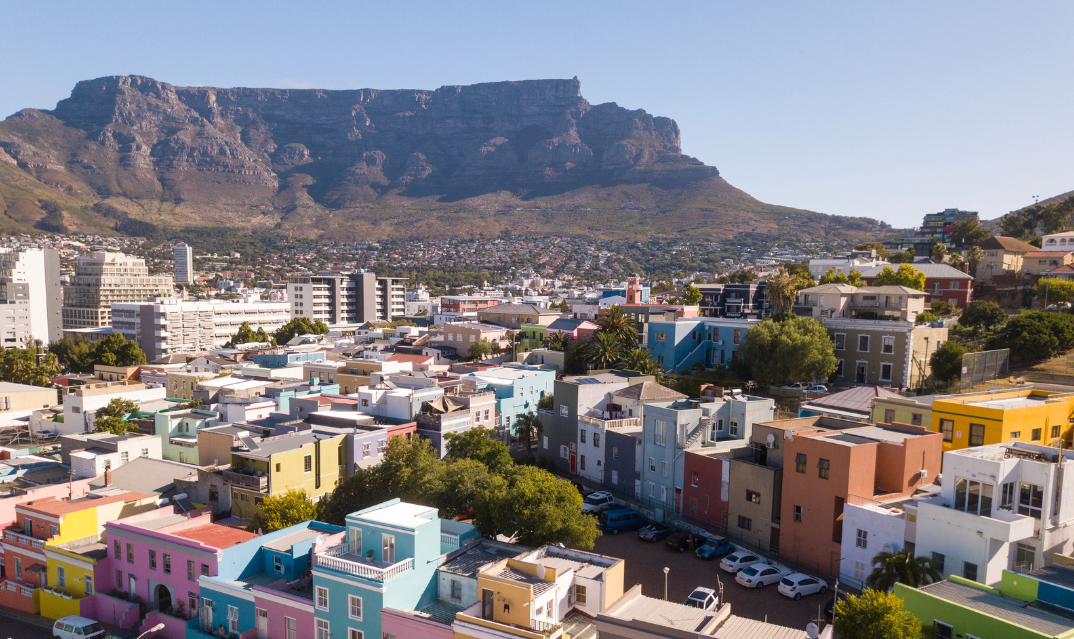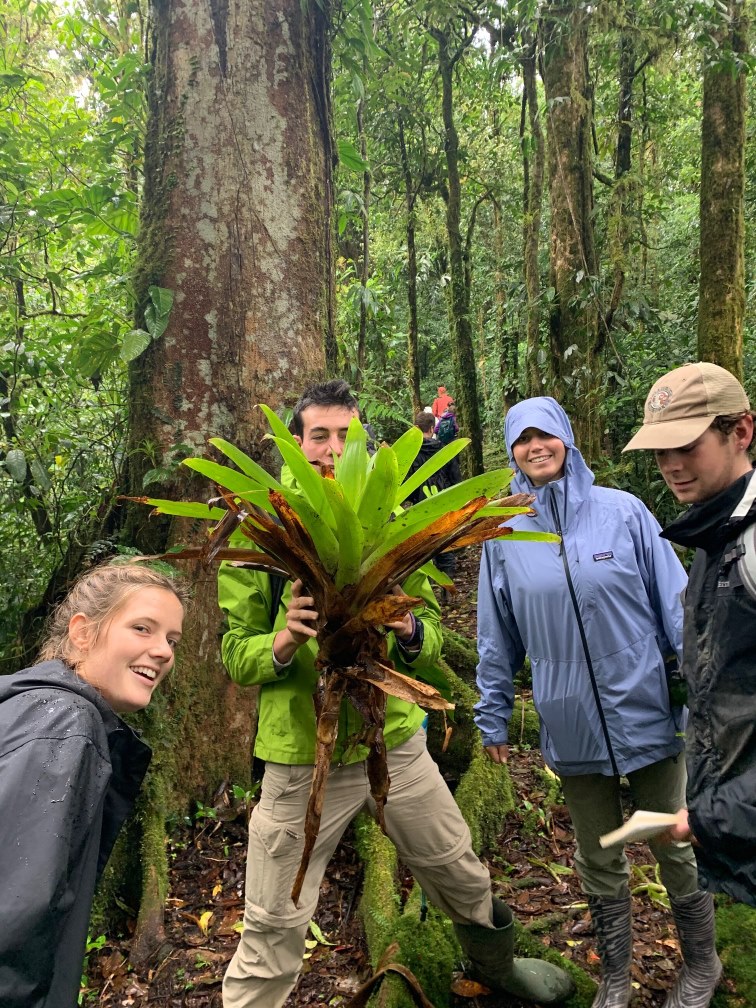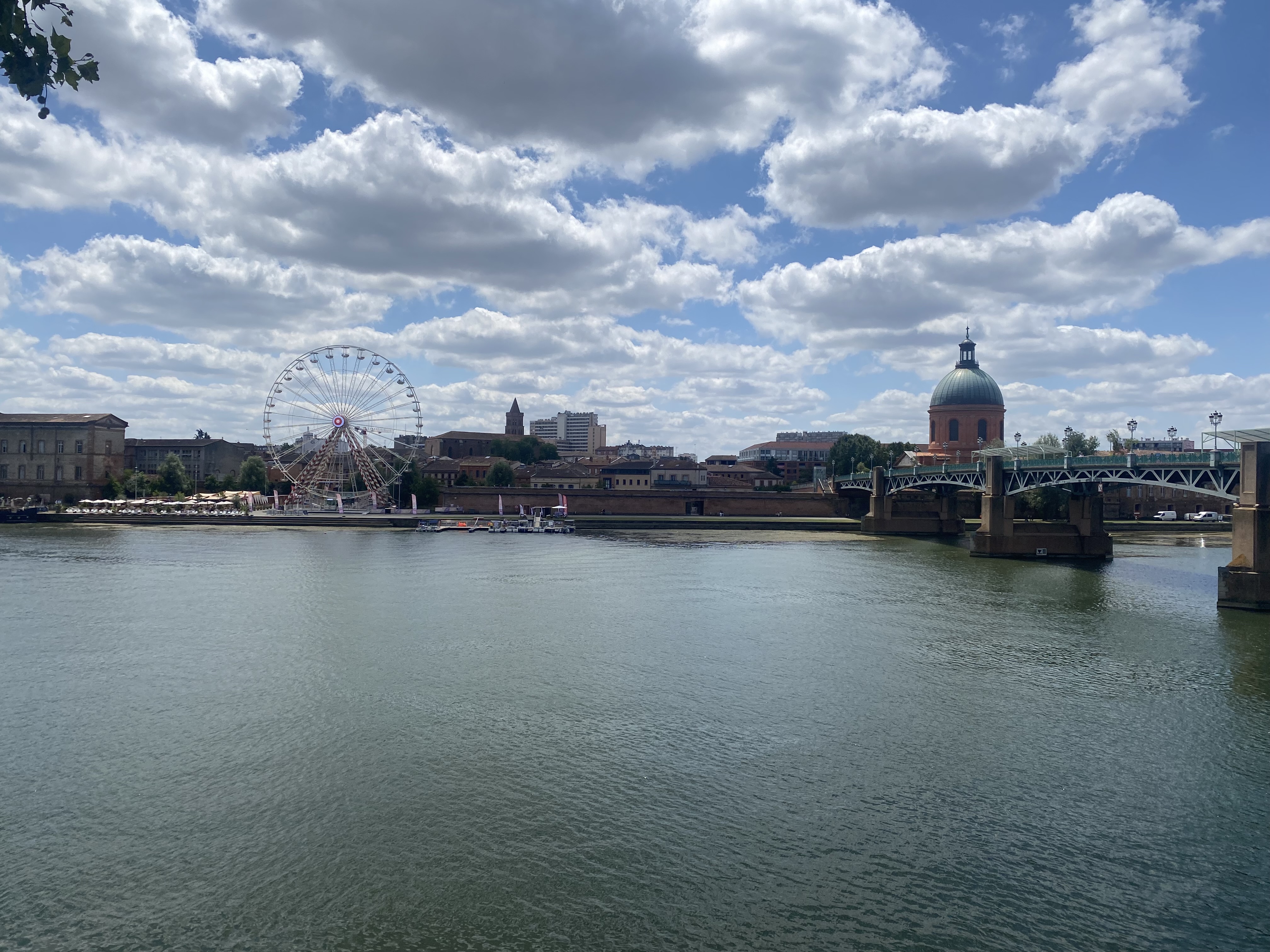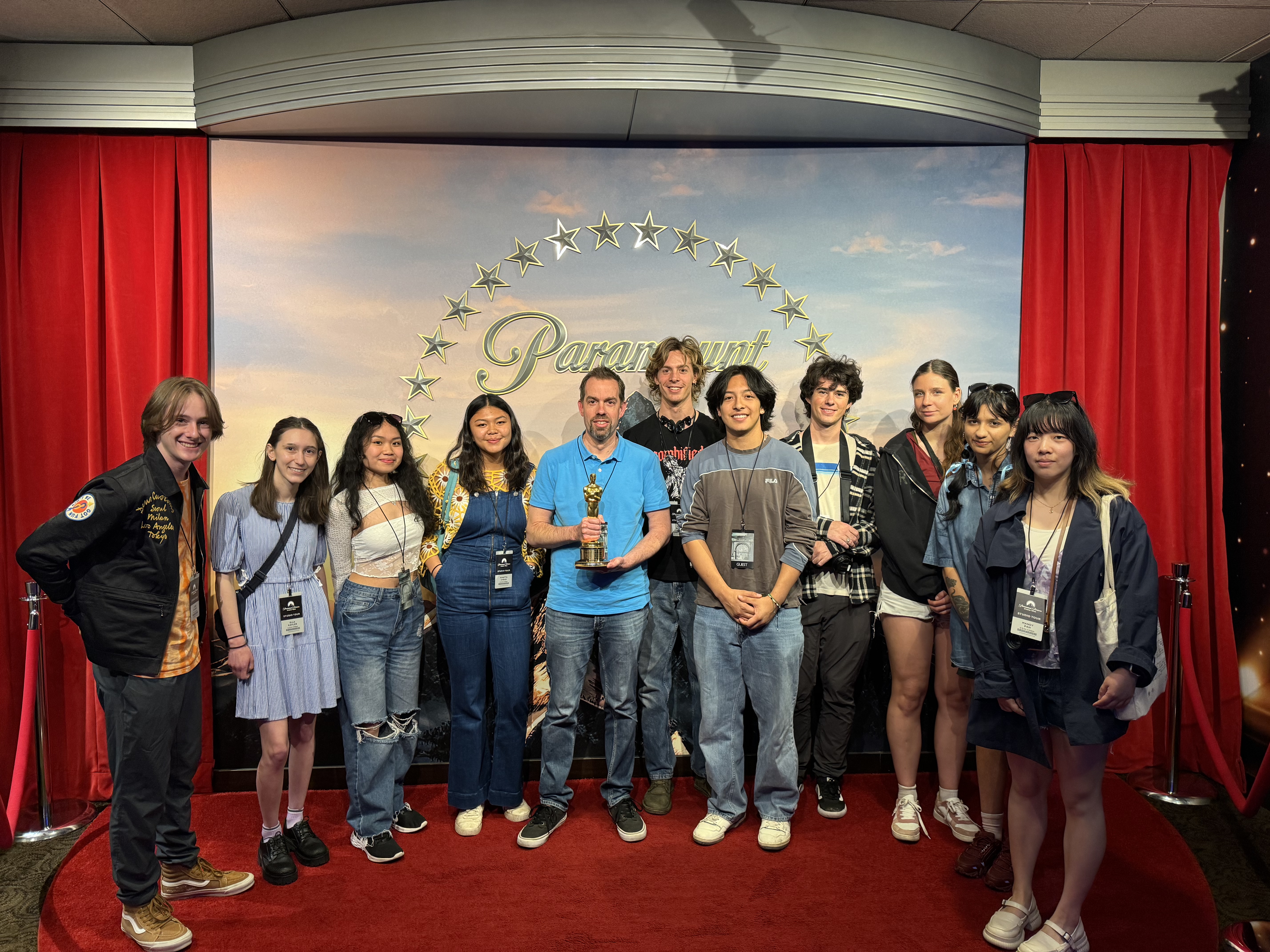Academic Year 2025-2026 Blocks Away
BLOCK AWAY & ABROAD BASICS
APPLICATION WINDOW
The primary application window for all 2025-2026 Academic Year Blocks Away is January 30 through March 15, 2025, following our official launch event at the Study Away Fair on Thursday, January 30 (12:00 p.m. to 2:00 p.m. in the Worner Campus Center). All students who apply during this window will be considered for an aid award (See Billing & Finances page for details). All applications during the application window will be reviewed for aid eligibility. Students will be notified of their aid award by March 31, 2025.
SECONDARY WINDOW FOR BLOCKS 7 AND 8
While most programs close to new applications following the spring application window, Block 7 and 8 programs do offer a second application period which runs from April 1st, 2025 through the end of Block 1 the following Fall (September 17, 2025). However, it should be noted that it is possible for Block 7 or 8 courses to fill and close to new applications during the initial spring period, so application in the primary window the prior spring is recommended.
LATE APPLICATIONS
Students who wish to apply for a block away after the application window has closed should consult with the program's faculty leader to determine if there remain available spaces in the program for a late application. Late applicants can be placed on an aid waitlist, but if a student is in need of financial aid it is highly recommended that applications be completed by the initial deadline.
APPLYING TO MULTIPLE PROGRAMS
Unlike the one-application policy for Partner-Led Semesters, with Blocks Away it is possible to apply to multiple programs. Students who do this should notify Global Education of their final decision to accept admission into their preferred program no later than the earliest Withdrawal deadline of the programs they have selected. Failure to notify Global Education of your desire to decline acceptance into a program by the program's deadline can lead to program fees being billed to the student.
For aid-eligible students who apply to multiple programs, aid will be awarded for the most expensive program to which the student has been accepted. If the student opts to join a different program the aid award can be transferred at the same percentage of cost coverage, not the same dollar amount. All aid-eligible students may be awarded an aid package only for 2 off-campus blocks (summer or academic year) in their four-year CC career.
All Applications must be completed on Summit. Once accepted into the program, students will receive an email with instructions for forms and waivers to complete. Upon completion of these forms and confirmation of acceptance of their seat in the block away course on Summit, the Consent of Department (COD) Code needed to register for the course on Banner will be provided.
PROGRAM FEES
Colorado College Block Away & Abroad programs are funded through a program fee. This fee typically covers on-site expenses for the students and faculty such as lodging, group meals, transportation, program excursions, guest speakers, group activities, and international health and travel insurance. The program fee may also include additional funds for student meals, however, most meals are funded through a refund of one block of the campus meal plan, provided to students in the weeks before departure.
Program fees do not typically cover airfare to/from the program location.
FINANCIAL AID
To assist with the costs of a block away/abroad, Colorado College has a pool of aid specifically designed to cover up to 90% of the expense of a block away, including airfare, for students who qualify for need-based aid. All students who apply to, and are accepted in, a Block Away will automatically be reviewed for aid eligibility. If eligible, a student can earn an aid award between 20%-90% of the estimated total cost for participation in the program. The aid pool is limited, so not all students who might qualify are guaranteed aid for any particular program. It is very important to apply during the primary Application Window for each given program to maximize the potential to obtain an aid award as late applicants are often unable to obtain an award. Aid-eligible students may receive an award towards two Off-Campus Blocks (summer or academic year) during their CC careers.
For students who apply during the primary application window, aid eligibility is reviewed in the 2 weeks following the application deadline (March 15), and students should expect to get a notification by April 1. For students who applied after the deadline, the aid review typically occurs once per block, so it can take a month to receive notification.
For detailed information about Block Away Program Fees and Aid Awards, please visit our Billing & Finances for AY Blocks Away Page.
Each Academic Year Off-Campus Block has a set Student Withdrawal Deadline. Withdrawal charges for Academic Year Blocks are defined by the withdrawal date as it relates to this deadline as well as the program departure date.
- Withdrawal prior to the published deadline for the program will incur no charges.
- Post-deadline withdrawal will incura charge of 25% of the program fee.
- The withdrawal charge increases to 75% of the program fee for any withdrawal occurring within the block prior to the scheduled off-campus block. For example, a student who withdraws from a Block 4 course during Block 3 will incur a 75% charge, while those who withdrew in Block 2 would have a 25% fee and those who withdrew prior to the program's deadline would have no charge billed to them.
Students may have a portion of the late withdrawal charges waived with appropriate documentation that the withdrawal was attributable to medical necessity.
WITHDRAWAL DATES
- Block 1 or 2 Programs: May 1
- Block 3 or 4 Programs: August 1
- Block 5 or 6 Programs: October 1
- Block 7 or 8 Programs: December 1
NOTE: Due to the requirement for internal flights within the program, the Block 3 PS203 course in Botswana and South Africa has an early Withdrawal Deadline of July 15, 2025.
To withdraw from a block away, return to your application on Summit and use the blue "Request Cancellation" button to submit your withdrawal. Email, in-person, or phone notification of the faculty leader is not sufficient to initiate a formal withdrawal, and a formal withdrawal is required.
If you have never obtained a passport before and received need-based financial aid from CC, you may apply for an Academic Opportunities Grant to help cover some of those expenses required to participate in a CC study abroad program.
It is highly recommended that as you apply for any Block Away you ensure that your passport is valid no less than 6 months beyond the end date of your program. Many countries do not allow access if a passport is within its final 6 months of validity, so a renewal may be needed if your passport will expire within 6 months of the program's closure. If your passport is due for renewal during this time frame, we recommend seeking the renewal immediately as passport processing times have been increasing over the past few years.
DO NOT DELAY IF YOU NEED TO OBTAIN OR RENEW A PASSPORT: Times required to obtain a new passport or to renew a passport have grown considerably over the past year. It now can take 2 months or longer to obtain a renewal or a new passport with standard service. Even expedite service can take up to several weeks to process. If you need a new passport or need to renew your passport, we recommend that you do so immediately, even before application and approval for a block away.
UNITED KINGDOM & EUROPEAN UNION REQUIREMENTS
In 2025 the United Kingdom (England, Scotland, Wales, Northern Ireland) and the European Union will be initiating an electronic travel authorization process for all U.S. passport holders , as well as for holders of other passports that do not require a visa for short stays. Obtaining the UK's "ETA" document or the EU's "ETIAS" document will be required for travel to or through these nations, including for simple flight layovers and transfers within one of these nation's airports.
More information on this travel requirement for transit through or travel to the UK or the EU, as well as instructions on how to obtain the ETA (and the ETIAS when it becomes effective) are available on our Predeparture Planning webpage.
As you are likely aware, there are many locations around the world where U.S. passport holders may enter for 90 days without a visa, but where residents and citizens of other nations are required to have a visa. This is something to be cognizant of as you enroll in a Block Abroad that might take you outside of the United States.
Please note you may have additional costs and requirements not common for U.S. citizens. These include:
- You may be required to obtain a visa for entry to the program’s host country when U.S. citizens do not. Visas commonly require paying a fee.
- You may need to schedule visa appointments through consular offices outside of Colorado and travel independently to these appointments.
- You may need to apply well in advance to obtain a visa appointment. Please do not wait until the final weeks before departure to begin this process.
- Financial aid does not cover any of these costs connected to applying for these visas for any block off-campus programs.
For assistance with any visa-related questions tied to a Block Abroad, please schedule an appointment with Kellee Fletcher in Global Education
If you believe you will need financial support in order to obtain the necessary visa for a program to which you have been accepted, please contact Global Education. Funds are available (on a limited basis) from Global Education. You can discuss this, as well as the visa process with Ms. Fletcher.
UNITED KINGDOM & EUROPEAN UNION REQUIREMENTS
The United Kingdom (England, Scotland, Wales, Northern Ireland) and the European Union will be initiating an electronic travel authorization process for travelers whose nation of origin does not require an entry visa. This includes Canada, Mexico, many European nations, and a variety of other nations that have previously only needed a passport to enter Europe as a tourist. Obtaining the UK's "ETA" document or the EU's "ETIAS" document will be required for travel to or through these nations, even for transferring flights in one of their airports.
If your country is not one where visa-free entry is possible to the UK or to the EU, then this new requirement does not affect you. You would still be required to obtain an entry visa as outlined above.
If you normally can enter the UK or the EU without a visa, then the ETA/ETIAS is now almost certainly required for you to enter. More information on this travel requirement for transit through or travel to the UK or the EU, as well as instructions on how to obtain the ETA (and the ETIAS when it becomes effective) are available on our Predeparture Planning webpage.
PROGRAM WITHDRAWAL DEADLINES
- Programs in Blocks 1 or 2: May 1st
- Programs in Blocks 3 or 4: August 1st
- Programs in Blocks 5 or 6: October 1st
- Programs in Blocks 7 or 8: December 1st
2026-2027 OFF CAMPUS BLOCKS AWAY FAIR
The full roster of Off-Campus Blocks for 2026-2027 will be published in January, 2026. The Study Away Fair where all Blocks, along with nearly 30 Semester Away partners, will be held in January as well. The Fair is the best opportunity to explore all the study away opportunities for the next year, including all faculty-led academic year off-campus blocks.2026 STUDY AWAY FAIR
January 29, 2026
12:00 p.m. - 2:00 p.m.
Worner Center Lobby
show all / hide all
Fall 2025 Blocks Away & Abroad
 An interdisciplinary study of the history and politics U.S. film through an immersive exploration of New York City; a dynamic landscape where different peoples, interest groups, political movements, and other forces vie for power, wealth, recognition, and representation. For each topic, we will examine key films in the history of New York City filmmaking.
An interdisciplinary study of the history and politics U.S. film through an immersive exploration of New York City; a dynamic landscape where different peoples, interest groups, political movements, and other forces vie for power, wealth, recognition, and representation. For each topic, we will examine key films in the history of New York City filmmaking.
Course Full Name: New York: Politics, Film, Culture
Course Number: FM200
Faculty Leader(s): Prof. Scott Krzych
Prerequisites: None
Major Requirements Met: Genre, History, and Theory credit in Film & Media Studies major/minor
College Requirements Met: EPUS: Equity & Power: U.S. Context
Course Location: New York City
Heightened Physical & Psychological Requirements for All Study Away: Study Away or Abroad can be a very different experience than an on-campus course, requiring both physical and mental adjustments which may not be typical for your on-campus experience. This includes requirements for physical activity such as more extensive physical movement (walking, touring, extended sedentary time during travel, etc.), requirements to manage luggage, often on uneven terrain such as cobblestone streets or buildings without elevators, or locations with limited medical facilities, potential extremes of weather and temperature. Housing options are also significantly different from an on-campus experience. Some programs will use family homestays while others will require students live in pairs, triples, and quads. Travel is also inherently a stressful alteration to your normal routines, with greater flexibility, adaptability and resilience required, whether it is dealing with distinct cultures, language differences, feelings of “otherness” or lack of belonging, or simply greater ambiguity and unfamiliarity with surroundings. We recommend that all students consider these realities of study away and abroad as they consider programs. Below we will list any known expectations which the faculty have identified for their specific course.
Expectations for Study on this Program: This program requires extensive walking to explore sites, historical neighborhoods and buildings in the city.
Course Fee: $4,300
Included in Fee: Fee includes all on-site lodging, transportation, group meals, excursions & group activities. Not included in the fee is airfare to/from New York and individual meals. All students who have a full meal plan at Colorado College will receive a one-block refund of their meal fund with those funds available for on-site meal costs.
Application Process: Apply on Summit, within the Global Education option. The main application window for this program is January 30-March 15, 2025. Students who apply during the window will be reviewed for eligibility for an aid award to cover up to 90% of the program fee and anticipated airfare costs. Students who apply and/or are accepted into the program after March 16 may also qualify for aid, but aid is limited and may not be available to students accepted into this program after the March 15 deadline.
Withdrawal Deadline: Students accepted to this program may withdraw by May 1, 2025 with no financial commitment to the program. Late withdrawals will be billed either 25% or 75% of the program fee, depending on the date of withdrawal. See our Billing & Finance page for details.
DUE TO LOW ENROLLMENT, THIS COURSE HAS BEEN RECLASSIFIED AS AN ON-CAMPUS COURSE WITH A FIELD TRIP TO NEW YORK, RATHER THAN AS AN OFF-CAMPUS BLOCK.
With its new On-Campus designation, this course can be added thought the standard registration processes. Due to its extended field trip to New York, the course will have a fee of $1,650, however it is not eligible for Block Away Aid Awards as it is no longer considered an off-campus block. Aid may be available from our Field Study funds. Please contact Drew Cavin, Director of Field Study to inquire about funding towards this course's program fee.
This is an advanced performance design studio course which includes a field study trip to New York City for ten days. Emphasis will be on the emergence of new approaches and innovations in scenic and performance design and seeks to inspire and enable creative work that integrates traditional visual languages of the stage with current practice. Spatial designs for performance and the theatrical stage will be explored. Model making, drawing, and drafting design programs will be part of this curriculum.
Course Full Name: Advanced Topics in Design
Course Number: TH340
Faculty Leader(s): Prof. Marie Davis
Prerequisites: TH110 Fundamentals of Performance Design
Major Requirements Met: This course serves as one of the Creative Core required courses within the Theatre major.
College Requirements Met: None
Course Location: New York City
 This course is a designated Career Catalyst Block.
This course is a designated Career Catalyst Block.
In collaboration with National Geographic, this "Career Catalyst Block" course empowers students to explore the evolution and dissemination of scientific knowledge in the context of education-oriented nonprofit organizations. Students will investigate historical and contemporary methods of documenting and sharing information as well as the power dynamics of such endeavors.
While understanding the internal and external functions of educational nonprofits, we will come to understand their impact on public awareness and policy formation, equipping students to navigate the creation and dissemination of knowledge outside of higher education. Students will develop tools to engage ethically with collective histories through interdisciplinary study and hands-on projects.
This course begins on campus, has an extended "immersive" period at National Geographic in Washington, D.C. and then returns to campus to complete the course.
Course Full Name: Evolving How We Narrate Evolution: National Geographic & The Role of Educational Non-Profits
Course Number: GS222
Faculty Leader(s): Prof. Dan Johnson & Prof. Ryan Banagale
Prerequisites: None
College Requirements Met: AIM: Analysis & Interpretation of Meaning, SHB: Societies & Human Behavior
Course Location: On-Campus and at National Geographic in Washington, D.C.
Heightened Physical & Psychological Requirements for All Study Away: Study Away or Abroad can be a very different experience than an on-campus course, requiring both physical and mental adjustments which may not be typical for your on-campus experience. This includes requirements for physical activity such as more extensive physical movement (walking, touring, extended sedentary time during travel, etc.), requirements to manage luggage, often on uneven terrain such as cobblestone streets or buildings without elevators, or locations with limited medical facilities, potential extremes of weather and temperature. Housing options are also significantly different from an on-campus experience. Some programs will use family homestays while others will require students live in pairs, triples, and quads. Travel is also inherently a stressful alteration to your normal routines, with greater flexibility, adaptability and resilience required, whether it is dealing with distinct cultures, language differences, feelings of “otherness” or lack of belonging, or simply greater ambiguity and unfamiliarity with surroundings. We recommend that all students consider these realities of study away and abroad as they consider programs. Below we will list any known expectations which the faculty have identified for their specific course.
Expectations for Study on this Program:
Course Fee: $2,500
Included in Fee: Fee includes all on-site lodging, transportation, group meals, excursions & group activities. Not included in the fee is airfare to/from Washington D.C. and individual meals. As this course does not leave campus for the full block, students will not receive a refund from their meal plan. Students should confirm with the faculty that some meal allowance will be provided to support meals during travel.
Application Process: Apply on Summit, within the Global Education portal, by March 31.
Withdrawal Deadline: Students accepted to this program may withdraw by May 1, 2025 with no financial commitment to the program. Late withdrawals will be billed either 25% or 75% of the program fee, depending on the date of withdrawal. See our Billing & Finance page for details.
 South Africa and Botswana, two of the most vibrant democracies in Africa, have reached this point through very different paths. Join us to compare the politics of both countries to understand their respective achievements and ongoing challenges. The first half of the block, we will be based in Gaborone, Botswana’s capital, and the second half in Cape Town, South Africa. Plan to meet with parliamentarians, human rights advocates, and public officials, and engage with members of civil society. We’ll visit sites of cultural and political significance, including national legislatures, areas of ecological importance, and formal and informal economic outlets.
South Africa and Botswana, two of the most vibrant democracies in Africa, have reached this point through very different paths. Join us to compare the politics of both countries to understand their respective achievements and ongoing challenges. The first half of the block, we will be based in Gaborone, Botswana’s capital, and the second half in Cape Town, South Africa. Plan to meet with parliamentarians, human rights advocates, and public officials, and engage with members of civil society. We’ll visit sites of cultural and political significance, including national legislatures, areas of ecological importance, and formal and informal economic outlets.
Course Full Name: South Africa & Botswana: Comparing Vibrant Democracies in Southern Africa
Course Number: PS203
Faculty Leader(s): Prof. Joseph Derdzinski
Prerequisites: None
Major Requirements Met: Consult with Political Science for this course's place within its various major options.
College Requirements Met: None
Course Location: Gabarone, Botswana and Cape Town, South Africa
Heightened Physical & Psychological Requirements for All Study Away: Study Away or Abroad can be a very different experience than an on-campus course, requiring both physical and mental adjustments which may not be typical for your on-campus experience. This includes requirements for physical activity such as more extensive physical movement (walking, touring, extended sedentary time during travel, etc.), requirements to manage luggage, often on uneven terrain such as cobblestone streets or buildings without elevators, or locations with limited medical facilities, potential extremes of weather and temperature. Housing options are also significantly different from an on-campus experience. Some programs will use family homestays while others will require students live in pairs, triples, and quads. Travel is also inherently a stressful alteration to your normal routines, with greater flexibility, adaptability and resilience required, whether it is dealing with distinct cultures, language differences, feelings of “otherness” or lack of belonging, or simply greater ambiguity and unfamiliarity with surroundings. We recommend that all students consider these realities of study away and abroad as they consider programs. Below we will list any known expectations which the faculty have identified for their specific course.
Expectations for Study on this Program: This program requires extensive walking or hiking to explore sites or participate in course activities. It also takes place in a location which may experience intense atmospheric conditions, including extreme heat, or extensive time outside in harsh conditions. Finally, this program may feature immersion in unfamiliar community settings, housing types unfamiliar to students, limited dietary options, or other potentially heightened-stress scenarios which may produce challenges to student mental health.
Course Fee: $5,950
Included/Not Included in Fee: Fee includes all on-site lodging, transportation, group meals, excursions & group activities, and international health & travel insurance. Not included in the fee is airfare to Gabarone and back from Cape Town, as well as individual meals. All students who have a full meal plan at Colorado College will receive a one-block refund of their meal fund with those funds available for on-site meal costs.
Application Process: Apply on Summit, within the Global Education option. The main application window for this program is January 30-March 15, 2025. Students who apply during the window will be reviewed for eligibility for an aid award to cover up to 90% of the program fee and anticipated airfare costs. Students who apply and/or are accepted into the program after March 16 may also qualify for aid, but aid is limited and may not be available to students accepted into this program after the March 15 deadline.
Withdrawal Deadline: Students accepted to this program may withdraw by July 15, 2025 with no financial commitment to the program. Late withdrawals will be billed either 25% or 75% of the program fee, depending on the date of withdrawal. See our Billing & Finance page for details.
show all / hide all
Spring 2026 Blocks Away & Abroad
 On-site investigations of the ecology and biogeography of Andean mountain forests and Patagonian steppe and studies of the ecology of several marine vertebrate species at the Atlantic coast. Students will read and present original literature, meet with local scientists at their study sites, and develop hypotheses that could be tested in the ecosystems we visit.
On-site investigations of the ecology and biogeography of Andean mountain forests and Patagonian steppe and studies of the ecology of several marine vertebrate species at the Atlantic coast. Students will read and present original literature, meet with local scientists at their study sites, and develop hypotheses that could be tested in the ecosystems we visit.
Course Full Name: Ecology & Biogeography of Patagonia
Course Number: BE389/390
Faculty Leader(s): Prof. Brian Linkhart & Prof. Roxaneh Khorsand
Prerequisites: Junior or Senior Standing, Organismal Biology & Ecology 208 and 389, with consent of instructor. (389 is offered in Half-Block prior to departure.)
Major Requirements Met: Elective within the OBE Major program.
College Requirements Met: None
Course Location: Patagonia Region, Argentina
Course Fee: $6,000
Included/Not Included in Fee: Fee includes all on-site lodging, transportation, group meals, excursions & group activities, and international health & travel insurance. Not included in the fee is airfare to/from Argentina and individual meals. All students who have a full meal plan at Colorado College will receive a one-block refund of their meal fund with those funds available for on-site meal costs.
Application Process: Apply on Summit, within the Global Education option. The main application window for this program is January 30-March 15, 2025. Students who apply during the window will be reviewed for eligibility for an aid award to cover up to 90% of the program fee and anticipated airfare costs. Students who apply and/or are accepted into the program after March 16 may also qualify for aid, but aid is limited and may not be available to students accepted into this program after the March 15 deadline.
Withdrawal Deadline: Students accepted to this program may withdraw by October 1, 2025 with no financial commitment to the program. Late withdrawals will be billed either 25% or 75% of the program fee, depending on the date of withdrawal. See our Billing & Finance page for details.
 This course uses Melbourne as both subject and classroom, embedding students in one of the Southern Hemisphere's most dynamic cities while developing their skills in cultural journalism and creative nonfiction. Based at Victoria University's city campus, we will explore Melbourne's status as a UNESCO City of Literature through multiple lenses: its thriving independent music ecosystem, its reputation as the sporting capital of Australia, and its internationally recognized food culture. A central theme will be examining how Melbourne's cultural institutions and public spaces engage with Indigenous histories and rights, providing students with a valuable comparative perspective on how different settler-colonial societies approach questions of recognition and reconciliation.
This course uses Melbourne as both subject and classroom, embedding students in one of the Southern Hemisphere's most dynamic cities while developing their skills in cultural journalism and creative nonfiction. Based at Victoria University's city campus, we will explore Melbourne's status as a UNESCO City of Literature through multiple lenses: its thriving independent music ecosystem, its reputation as the sporting capital of Australia, and its internationally recognized food culture. A central theme will be examining how Melbourne's cultural institutions and public spaces engage with Indigenous histories and rights, providing students with a valuable comparative perspective on how different settler-colonial societies approach questions of recognition and reconciliation.Students will work as a collaborative editorial team to produce a series of written works that collectively map Melbourne's cultural geography. Assignments will include profiles of local artists and athletes, critical reviews of performances and restaurants, and reported essays on the city's engagement with its Aboriginal heritage. Through daily writing workshops, field reporting assignments, and conversations with local cultural producers and critics, students will develop sophisticated tools for cultural analysis while building a portfolio of work that captures Melbourne's distinctive character. The final product will be a curated digital guide that offers future visitors a nuanced portrait of this complex and creative city.
Course Full Name: Topics in Creative Writing: Writing Melbourne
Course Number: EN286
Faculty Leader(s): Prof. Steven Hayward
Prerequisites: None
Major Requirements Met: Elective course within English or Creative Writing majors.
College Requirements Met: CP: Creative Process
Course Location: Melbourne, Australia
Heightened Physical & Psychological Requirements for All Study Away: Study Away or Abroad can be a very different experience than an on-campus course, requiring both physical and mental adjustments which may not be typical for your on-campus experience. This includes requirements for physical activity such as more extensive physical movement (walking, touring, extended sedentary time during travel, etc.), requirements to manage luggage, often on uneven terrain such as cobblestone streets or buildings without elevators, or locations with limited medical facilities, potential extremes of weather and temperature. Housing options are also significantly different from an on-campus experience. Some programs will use family homestays while others will require students live in pairs, triples, and quads. Travel is also inherently a stressful alteration to your normal routines, with greater flexibility, adaptability and resilience required, whether it is dealing with distinct cultures, language differences, feelings of “otherness” or lack of belonging, or simply greater ambiguity and unfamiliarity with surroundings. We recommend that all students consider these realities of study away and abroad as they consider programs. Below we will list any known expectations which the faculty have identified for their specific course.
Expectations for Study on this Program: immersion in unfamiliar community settings, housing types unfamiliar to students, or other potentially heightened-stress scenarios which may produce challenges to student mental health.
Course Fee: $4,900
Included/Not Included in Fee: Fee includes all on-site lodging, transportation, group meals, excursions & group activities, and international health & travel insurance. Not included in the fee is airfare to/from Ecuador and individual meals. All students who have a full meal plan at Colorado College will receive a one-block refund of their meal fund with those funds available for on-site meal costs.
Application Process: Apply on Summit, within the Global Education option. The main application window for this program is January 30-March 15, 2025. Students who apply during the window will be reviewed for eligibility for an aid award to cover up to 90% of the program fee and anticipated airfare costs. Students who apply and/or are accepted into the program after March 16 may also qualify for aid, but aid is limited and may not be available to students accepted into this program after the March 15 deadline.
Withdrawal Deadline: Students accepted to this program may withdraw by October 1, 2025 with no financial commitment to the program. Late withdrawals will be billed either 25% or 75% of the program fee, depending on the date of withdrawal. See our Billing & Finance page for details.
 This course travels to Chicago’s Newberry Library so that senior history majors may gather materials for their final research projects in a world-class library.
This course travels to Chicago’s Newberry Library so that senior history majors may gather materials for their final research projects in a world-class library.
Course Full Name: History Senior Seminar
Course Number: HY410
Faculty Leader(s): Prof. Amy Kohout
Prerequisites: Senior Status, HY399
Major Requirements Met: This course is one option for the History Senior Project within the Major.
College Requirements Met: None
Course Location: Chicago, Illinois
Heightened Physical & Psychological Requirements for All Study Away: Study Away or Abroad can be a very different experience than an on-campus course, requiring both physical and mental adjustments which may not be typical for your on-campus experience. This includes requirements for physical activity such as more extensive physical movement (walking, touring, extended sedentary time during travel, etc.), requirements to manage luggage, often on uneven terrain such as cobblestone streets or buildings without elevators, or locations with limited medical facilities, potential extremes of weather and temperature. Housing options are also significantly different from an on-campus experience. Some programs will use family homestays while others will require students live in pairs, triples, and quads. Travel is also inherently a stressful alteration to your normal routines, with greater flexibility, adaptability and resilience required, whether it is dealing with distinct cultures, language differences, feelings of “otherness” or lack of belonging, or simply greater ambiguity and unfamiliarity with surroundings. We recommend that all students consider these realities of study away and abroad as they consider programs. Below we will list any known expectations which the faculty have identified for their specific course.
Expectations for Study on this Program: This course has no heightened physical or psychological requirements.
Course Fee: $1,200
Included/Not Included in Fee: Fee includes all on-site lodging, transportation, group meals, excursions & group activities, and international health & travel insurance. Not included in the fee is airfare to/from Chicago and individual meals. All students who have a full meal plan at Colorado College will receive a one-block refund of their meal fund with those funds available for on-site meal costs.
Application Process: Apply on Summit, within the Global Education option. The main application window for this program is January 30-March 15, 2025. Students who apply during the window will be reviewed for eligibility for an aid award to cover up to 90% of the program fee and anticipated airfare costs. Students who apply and/or are accepted into the program after March 16 may also qualify for aid, but aid is limited and may not be available to students accepted into this program after the March 15 deadline.
Withdrawal Deadline: Students accepted to this program may withdraw by May 1, 2025 with no financial commitment to the program. Late withdrawals will be billed either 25% or 75% of the program fee, depending on the date of withdrawal. See our Billing & Finance page for details.
 This off-campus course examines the successes and challenges of sustainable development in Costa Rica, particularly in the face of climate change. Through discussions with activists and community groups, public officials, and environmentalists throughout the country, students will gain a multifaceted understanding of pressing issues including the politics of forest conservation, the social and environmental impacts of tourism, sustainable agriculture, and urban development. The relationship between the national and local governments, the role of international development aid, and Costa Rica’s contribution to global environmental governance will also be examined. The class will be based out of San José, with several day and overnight trips to other parts of the country.
This off-campus course examines the successes and challenges of sustainable development in Costa Rica, particularly in the face of climate change. Through discussions with activists and community groups, public officials, and environmentalists throughout the country, students will gain a multifaceted understanding of pressing issues including the politics of forest conservation, the social and environmental impacts of tourism, sustainable agriculture, and urban development. The relationship between the national and local governments, the role of international development aid, and Costa Rica’s contribution to global environmental governance will also be examined. The class will be based out of San José, with several day and overnight trips to other parts of the country.Course Full Name: Adv. Topics in Environmental Social Science: Sustainable Development, Conservation, and Social Justice in Costa Rica
Course Number(s): EV360
Faculty Leader(s): Prof. Corina McKendry
Prerequisites: None
Major Requirements Met: TBD
College Requirements Met: None
Course Location: San Jose, Tamarindo, Monteverde, and Perez Zeledon, Costa Rica
Heightened Physical & Psychological Requirements for All Study Away: Study Away or Abroad can be a very different experience than an on-campus course, requiring both physical and mental adjustments which may not be typical for your on-campus experience. This includes requirements for physical activity such as more extensive physical movement (walking, touring, extended sedentary time during travel, etc.), requirements to manage luggage, often on uneven terrain such as cobblestone streets or buildings without elevators, or locations with limited medical facilities, potential extremes of weather and temperature. Housing options are also significantly different from an on-campus experience. Some programs will use family homestays while others will require students live in pairs, triples, and quads. Travel is also inherently a stressful alteration to your normal routines, with greater flexibility, adaptability and resilience required, whether it is dealing with distinct cultures, language differences, feelings of “otherness” or lack of belonging, or simply greater ambiguity and unfamiliarity with surroundings. We recommend that all students consider these realities of study away and abroad as they consider programs. Below we will list any known expectations which the faculty have identified for their specific course.
Expectations for Study on this Program: This program requires extensive walking or hiking to explore sites or participate in course activities. It also immersion in unfamiliar community settings, housing types unfamiliar to students, limited dietary options, or other potentially heightened-stress scenarios which may produce challenges to student mental health. If you have concerns or questions about the demands of the program, please speak with Prof. McKendry prior to application.
Course Fee: $4,350
Included/Not Included in Fee: Fee includes all on-site lodging, transportation, group meals, excursions & group activities, and international health & travel insurance. Not included in the fee is airfare to/from Costa Rica and individual meals. All students who have a full meal plan at Colorado College will receive a one-block refund of their meal fund with those funds available for on-site meal costs.
Application Process: Apply on Summit, within the Global Education option. The main application window for this program is January 30-March 15, 2025. Students who apply during the window will be reviewed for eligibility for an aid award to cover up to 90% of the program fee and anticipated airfare costs. Students who apply and/or are accepted into the program after March 16 may also qualify for aid, but aid is limited and may not be available to students accepted into this program after the March 15 deadline.
Withdrawal Deadline: Students accepted to this program may withdraw by October 1, 2025 with no financial commitment to the program. Late withdrawals will be billed either 25% or 75% of the program fee, depending on the date of withdrawal. See our Billing & Finance page for details.
 Introduction to reading Attic Greek, the language of ancient Athens in its political, literary, and philosophical prime. Students will acquire fluency with the language’s grammar and vocabulary, enabling them to read and translate actual Greek literature (including the koine of the New Testament). In unpacking how Attic Greek works, students will simultaneously gain an ability to analyze the grammar of English and other languages. We will also learn about the history of the Greek language and its considerable influence on English’s scientific vocabulary and literature.
Introduction to reading Attic Greek, the language of ancient Athens in its political, literary, and philosophical prime. Students will acquire fluency with the language’s grammar and vocabulary, enabling them to read and translate actual Greek literature (including the koine of the New Testament). In unpacking how Attic Greek works, students will simultaneously gain an ability to analyze the grammar of English and other languages. We will also learn about the history of the Greek language and its considerable influence on English’s scientific vocabulary and literature.
Course Full Name: Greek For Beginners
Course Number: CL101
Faculty Leader(s): Prof. Sanjaya Thakur
Prerequisites: None
Major Requirements Met: Fulfills language Req. for Classics Minor and works towards language req. for Classics Major.
College Requirements Met: Fulfills 1 unit of language requirement for CEL/LANG: Critical Engagement through Language
Course Location: Athens, Greece
Heightened Physical & Psychological Requirements for All Study Away: Study Away or Abroad can be a very different experience than an on-campus course, requiring both physical and mental adjustments which may not be typical for your on-campus experience. This includes requirements for physical activity such as more extensive physical movement (walking, touring, extended sedentary time during travel, etc.), requirements to manage luggage, often on uneven terrain such as cobblestone streets or buildings without elevators, or locations with limited medical facilities, potential extremes of weather and temperature. Housing options are also significantly different from an on-campus experience. Some programs will use family homestays while others will require students live in pairs, triples, and quads. Travel is also inherently a stressful alteration to your normal routines, with greater flexibility, adaptability and resilience required, whether it is dealing with distinct cultures, language differences, feelings of “otherness” or lack of belonging, or simply greater ambiguity and unfamiliarity with surroundings. We recommend that all students consider these realities of study away and abroad as they consider programs. Below we will list any known expectations which the faculty have identified for their specific course.
Expectations for Study on this Program: This course requires significant walking to explore sites, visit museums, and tour neighborhoods as part of the academic program.
Course Fee: $2,600
Included/Not Included in Fee: Fee includes all on-site lodging, transportation, group meals, excursions & group activities, and international health & travel insurance. Not included in the fee is airfare to/from Athens and individual meals. All students who have a full meal plan at Colorado College will receive a one-block refund of their meal fund with those funds available for on-site meal costs.
Application Process: Apply on Summit, within the Global Education option. The main application window for this program is January 30-March 15, 2025. Students who apply during the window will be reviewed for eligibility for an aid award to cover up to 90% of the program fee and anticipated airfare costs. Students who apply and/or are accepted into the program after March 16 may also qualify for aid, but aid is limited and may not be available to students accepted into this program after the March 15 deadline.
Withdrawal Deadline: Students accepted to this program may withdraw by October 1, 2025 with no financial commitment to the program. Late withdrawals will be billed either 25% or 75% of the program fee, depending on the date of withdrawal. See our Billing & Finance page for details.
 In this class we study both the figurative and the literal museumification of music in the very place where Western art music (as a canon) was born: Vienna. We explore museums and attend concerts, investigating the work concept’s power to ossify certain musical monuments, and how shifting reception histories and issues of performance practice can shape that process. We consider new ideas in critical organology dealing with the agency of musical instruments and the complex networks of which they are a part. Touching on museum ethics, we go behind the scenes, meeting with curators and restoration specialists to discuss the opportunities and challenges that they face when dealing with musical instruments as museum-objects. The concept of “authenticity” serves as a through-line in this course, continuously bringing our discussions back to the question of what it means for something (a piece of music, an instrument) to be an “original.” Open to all students.
In this class we study both the figurative and the literal museumification of music in the very place where Western art music (as a canon) was born: Vienna. We explore museums and attend concerts, investigating the work concept’s power to ossify certain musical monuments, and how shifting reception histories and issues of performance practice can shape that process. We consider new ideas in critical organology dealing with the agency of musical instruments and the complex networks of which they are a part. Touching on museum ethics, we go behind the scenes, meeting with curators and restoration specialists to discuss the opportunities and challenges that they face when dealing with musical instruments as museum-objects. The concept of “authenticity” serves as a through-line in this course, continuously bringing our discussions back to the question of what it means for something (a piece of music, an instrument) to be an “original.” Open to all students.
Course Full Name: Music & The Museum
Course Number: MU228
Faculty Leader(s): Prof. Lidia Chang
Prerequisites: None
Major Requirements Met: This course counts towards the Music in Culture component of the Music major.
College Requirements Met: AIM: Analysis & Interpretation of Meaning, CP: Creative Process
Course Location: Vienna, Austria
Heightened Physical & Psychological Requirements for All Study Away: Study Away or Abroad can be a very different experience than an on-campus course, requiring both physical and mental adjustments which may not be typical for your on-campus experience. This includes requirements for physical activity such as more extensive physical movement (walking, touring, extended sedentary time during travel, etc.), requirements to manage luggage, often on uneven terrain such as cobblestone streets or buildings without elevators, or locations with limited medical facilities, potential extremes of weather and temperature. Housing options are also significantly different from an on-campus experience. Some programs will use family homestays while others will require students live in pairs, triples, and quads. Travel is also inherently a stressful alteration to your normal routines, with greater flexibility, adaptability and resilience required, whether it is dealing with distinct cultures, language differences, feelings of “otherness” or lack of belonging, or simply greater ambiguity and unfamiliarity with surroundings. We recommend that all students consider these realities of study away and abroad as they consider programs. Below we will list any known expectations which the faculty have identified for their specific course.
Expectations for Study on this Program: This course requires significant walking to explore sites, visit museums, and tour neighborhoods as part of the academic program.
Course Fee: $4,750, however, if the program is able to build a roster of 15 or more students, we will be able to reduce the fee to $4,400.
Included/Not Included in Fee: Fee includes all on-site lodging, transportation, group meals, excursions & group activities, and international health & travel insurance. Not included in the fee is airfare to/from Vienna and individual meals. All students who have a full meal plan at Colorado College will receive a one-block refund of their meal fund with those funds available for on-site meal costs.
Application Process: Apply on Summit, within the Global Education option. The main application window for this program is January 30-March 15, 2025. Students who apply during the window will be reviewed for eligibility for an aid award to cover up to 90% of the program fee and anticipated airfare costs. Students who apply and/or are accepted into the program after March 16 may also qualify for aid, but aid is limited and may not be available to students accepted into this program after the March 15 deadline.
Withdrawal Deadline: Students accepted to this program may withdraw by October 1, 2025 with no financial commitment to the program. Late withdrawals will be billed either 25% or 75% of the program fee, depending on the date of withdrawal. See our Billing & Finance page for details.
 The analysis of distributions, abundances, and interrelationships of organisms, populations, communities, and ecosystems with emphasis on tropical rain forests, cloud forests and agriculture. The course includes daily 4+ hours of fieldwork. It is taught in primary and secondary forests and coffee farms in the Monteverde Area of Costa Rica.
The analysis of distributions, abundances, and interrelationships of organisms, populations, communities, and ecosystems with emphasis on tropical rain forests, cloud forests and agriculture. The course includes daily 4+ hours of fieldwork. It is taught in primary and secondary forests and coffee farms in the Monteverde Area of Costa Rica.
Course Full Name: Ecology & The Environment
Course Number: EV209
Faculty Leader(s): Prof. Miro Kummel
Prerequisites: EV128: Introduction to Global Climate Change
Major Requirements Met: TBD
College Requirements Met: None
Course Location: Costa Rica (Field Stations)
Heightened Physical & Psychological Requirements for All Study Away: Study Away or Abroad can be a very different experience than an on-campus course, requiring both physical and mental adjustments which may not be typical for your on-campus experience. This includes requirements for physical activity such as more extensive physical movement (walking, touring, extended sedentary time during travel, etc.), requirements to manage luggage, often on uneven terrain such as cobblestone streets or buildings without elevators, or locations with limited medical facilities, potential extremes of weather and temperature. Housing options are also significantly different from an on-campus experience. Some programs will use family homestays while others will require students live in pairs, triples, and quads. Travel is also inherently a stressful alteration to your normal routines, with greater flexibility, adaptability and resilience required, whether it is dealing with distinct cultures, language differences, feelings of “otherness” or lack of belonging, or simply greater ambiguity and unfamiliarity with surroundings. We recommend that all students consider these realities of study away and abroad as they consider programs. Below we will list any known expectations which the faculty have identified for their specific course.
Expectations for Study on this Program: This course takes place in a remote field station, two hours walk from the nearest road. The students will need to carry their packs for two hours down a steep and muddy trail from the dropoff location to the field station. The students will also need to carry their packs up the hill for 2 hours back at the end of the 2.5 week segment at this location.
At the field station students will live in four-person rooms with bunk beds and an attached bathroom but no hot water. Food will be cooked by the field station staff and will conform to all identified dietary restrictions, and will be based on traditional rural Costa Rican cooking (beans, rice, fresh vegetables, fruit etc.).
Daily instruction will include 4 hours or more in the forest. While the hiking distances will typically be short (about 0.5-1.5 miles), some of it will be on steep terrain, much of it will be on narrow trails, and there will be rain at about 40-60% of our excursions (we are in the rain forest). There will be encounters with animals, some of which are venomous (scorpions, army ants, venomous snakes, tarantulas etc). Special instructions will be given to keep both the students and the wild animals safe during these encounters.
The location does not have cell signal or WIFI. The station has a high-end reliable emergency communication system that we are able to use in case of medical, mental health, and personal emergencies, including emergency messages can be passed from family members to students via the station staff, a student will be able to communicate with a health care provider including a mental health counselor via the system. However, cell phones will not work at the station. There is a cell tower about 8 miles away in a line of sight that allows some very inconsistent communication via text ... may work 1-2 times per week with persistent trying, but students and their families should not expect to be able to freely communicate with the wider world for the time we are at San Gerardo.
Medical evacuation procedures and times: (1) 20 minute ATV ride to Santa Elena Reserva on a muddy trail followed by 15-20 minute ambulance or car ride to a 24 hour emergency room at a 24 hr medical clinic in Santa Elena. (2) helicopter evacuation is possible weather permitting. (3) Fully equipped hospital is in Puntarenas about 1 hour drive from Santa Elena Reserva.
Course Fee: $3,250
Included/Not Included in Fee: Fee includes all on-site lodging, transportation, group meals, excursions & group activities, and international health & travel insurance. Not included in the fee is airfare to/from London and individual meals. All students who have a full meal plan at Colorado College will receive a one-block refund of their meal fund with those funds available for on-site meal costs.
Application Process: Apply on Summit, within the Global Education option. The main application window for this program is January 30-March 15, 2025. Students who apply during the window will be reviewed for eligibility for an aid award to cover up to 90% of the program fee and anticipated airfare costs. Students who apply and/or are accepted into the program after March 16 may also qualify for aid, but aid is limited and may not be available to students accepted into this program after the March 15 deadline.
Withdrawal Deadline: Students accepted to this program may withdraw by October 1, 2025 with no financial commitment to the program. Late withdrawals will be billed either 25% or 75% of the program fee, depending on the date of withdrawal. See our Billing & Finance page for details.
 WWII presented a number of hardships for Japanese Americans, as they navigated challenges to their identity, legal status, safety, and freedom. These social forces were quite different in Hawaii compared to the mainland US, given proximity to Pearl Harbor, racial demographics, and martial law. We will examine these forces and their effects on Japanese Americans in Hawaii. The second half of the course will be a field trip to Honolulu.
WWII presented a number of hardships for Japanese Americans, as they navigated challenges to their identity, legal status, safety, and freedom. These social forces were quite different in Hawaii compared to the mainland US, given proximity to Pearl Harbor, racial demographics, and martial law. We will examine these forces and their effects on Japanese Americans in Hawaii. The second half of the course will be a field trip to Honolulu. Course Full Name: Topics in Psychology: From Pearl Harbor to Honouliuli
Course Number: PY178
Faculty Leader(s): Prof. Jason Weaver
Prerequisites: None
Major Requirements Met: PY178 Can be an elective within the Psychology major.
College Requirements Met: None
Course Location: Honolulu, Hawaii
Heightened Physical & Psychological Requirements for All Study Away: Study Away or Abroad can be a very different experience than an on-campus course, requiring both physical and mental adjustments which may not be typical for your on-campus experience. This includes requirements for physical activity such as more extensive physical movement (walking, touring, extended sedentary time during travel, etc.), requirements to manage luggage, often on uneven terrain such as cobblestone streets or buildings without elevators, or locations with limited medical facilities, potential extremes of weather and temperature. Housing options are also significantly different from an on-campus experience. Some programs will use family homestays while others will require students live in pairs, triples, and quads. Travel is also inherently a stressful alteration to your normal routines, with greater flexibility, adaptability and resilience required, whether it is dealing with distinct cultures, language differences, feelings of “otherness” or lack of belonging, or simply greater ambiguity and unfamiliarity with surroundings. We recommend that all students consider these realities of study away and abroad as they consider programs. Below we will list any known expectations which the faculty have identified for their specific course.
Expectations for Study on this Program: Program requires extensive walking or hiking to explore sites or participate in course activities. The walking that is required for the course is primarily paved. We walk multiple miles around Waikiki and Pearl Harbor as part of the course.
Course Fee: $2,300
Included/Not Included in Fee: Fee includes all on-site lodging, transportation, group meals, excursions & group activities, and international health & travel insurance. Not included in the fee is airfare to/from Honolulu and individual meals. As this course does not leave campus for the full block, students will not receive a refund from their meal plan. Students should confirm with the faculty that some meal allowance will be provided to support meals during travel.
Application Process: Apply on Summit, within the Global Education option. The main application window for this program is January 30-March 15, 2025. Students who apply during the window will be reviewed for eligibility for an aid award to cover up to 90% of the program fee and anticipated airfare costs. Students who apply and/or are accepted into the program after March 16 may also qualify for aid, but aid is limited and may not be available to students accepted into this program after the March 15 deadline.
Withdrawal Deadline: Students accepted to this program may withdraw by October 1, 2025 with no financial commitment to the program. Late withdrawals will be billed either 25% or 75% of the program fee, depending on the date of withdrawal. See our Billing & Finance page for details.
 Encounter the history of Christian martyrdom and sainthood in Rome, Italy. Examines the beginnings of martyrdom in the early church, particularly in the context of the Roman Empire, and the legacies of the apostles Peter and Paul as well as the emergence of later saints, especially in the Catholic tradition. Historical study is attentive to ways in which Christian communities construct and memorialize—through literature, art, and space—martyrs and saints.
Encounter the history of Christian martyrdom and sainthood in Rome, Italy. Examines the beginnings of martyrdom in the early church, particularly in the context of the Roman Empire, and the legacies of the apostles Peter and Paul as well as the emergence of later saints, especially in the Catholic tradition. Historical study is attentive to ways in which Christian communities construct and memorialize—through literature, art, and space—martyrs and saints.Course Full Name: Martyrs and Saints
Course Number: RE200/HY200
Faculty Leader(s): Prof. Pamela Reaves
Prerequisites: None
Major Requirements Met: RE200: Elective credit in Religion major/minor. HY200: Elective credit in History major/minor
College Requirements Met: HP: Historical Perspectives
Course Location: Italy: Rome, Sicily
Heightened Physical & Psychological Requirements for All Study Away: Study Away or Abroad can be a very different experience than an on-campus course, requiring both physical and mental adjustments which may not be typical for your on-campus experience. This includes requirements for physical activity such as more extensive physical movement (walking, touring, extended sedentary time during travel, etc.), requirements to manage luggage, often on uneven terrain such as cobblestone streets or buildings without elevators, or locations with limited medical facilities, potential extremes of weather and temperature. Housing options are also significantly different from an on-campus experience. Some programs will use family homestays while others will require students live in pairs, triples, and quads. Travel is also inherently a stressful alteration to your normal routines, with greater flexibility, adaptability and resilience required, whether it is dealing with distinct cultures, language differences, feelings of “otherness” or lack of belonging, or simply greater ambiguity and unfamiliarity with surroundings. We recommend that all students consider these realities of study away and abroad as they consider programs. Below we will list any known expectations which the faculty have identified for their specific course.
Expectations for Study on this Program: immersion in unfamiliar community settings, housing types unfamiliar to students, or other potentially heightened-stress scenarios which may produce challenges to student mental health.
Course Fee: $4,200
Included/Not Included in Fee: Fee includes all on-site lodging, transportation, group meals, excursions & group activities, and international health & travel insurance. Not included in the fee is airfare to/from Florence and individual meals. All students who have a full meal plan at Colorado College will receive a one-block refund of their meal fund with those funds available for on-site meal costs.
Application Process: Apply on Summit, within the Global Education option. The main application window for this program is January 30-March 15, 2025. Students who apply during the window will be reviewed for eligibility for an aid award to cover up to 90% of the program fee and anticipated airfare costs. Students who apply and/or are accepted into the program after March 16 may also qualify for aid, but aid is limited and may not be available to students accepted into this program after the March 15 deadline.
Withdrawal Deadline: Students accepted to this program may withdraw by October 1, 2025 with no financial commitment to the program. Late withdrawals will be billed either 25% or 75% of the program fee, depending on the date of withdrawal. See our Billing & Finance page for details.
This course is a dedicated Career Catalyst Block.
 Explore the innovative model of convening and leadership that drives one of the world's most influential nonprofits. Go behind the scenes with the Aspen Institute to discover how they transform dialogue with leaders across generations, geographies, and viewpoints into real social impact.
Explore the innovative model of convening and leadership that drives one of the world's most influential nonprofits. Go behind the scenes with the Aspen Institute to discover how they transform dialogue with leaders across generations, geographies, and viewpoints into real social impact.
During this immersive block, you'll start at Colorado College learning from Aspen Institute President and CEO (and Colorado College trustee) Dan Porterfield the foundational "what": delving into what it means to know about complex social issues, understanding the role of a nonprofit professional, and examining the dynamics of convening to spark change. Next, you'll travel to Aspen to work on the Aspen Institute’s iconic campus to uncover the mission-driven "why" behind their 75 years of impact—from climate and economic opportunity to societal trust and leadership for rising generations. Finally, you'll head to their Washington D.C. headquarters, which includes their Center for Rising Generations, to examine the operational "how" of nonprofit management.
You'll gain highly transferable skills in strategic planning, executive operations, and high-stakes communication—assets that translate powerfully to any career trajectory, whether academic, healthcare, commercial, nonprofit, or for-profit. You'll conclude by designing and presenting a project to advance social change in a core impact area.
Course Number: GS222
Faculty Leader(s): Prof. Anthony Bull & Prof. Lora Louise Broady
Prerequisites: None
Major Requirements Met: N/A
College Requirements Met: None
Course Location: Aspen, CO & Washington D.C.
Heightened Physical & Psychological Requirements for All Study Away: Study Away or Abroad can be a very different experience than an on-campus course, requiring both physical and mental adjustments which may not be typical for your on-campus experience. This includes requirements for physical activity such as more extensive physical movement (walking, touring, extended sedentary time during travel, etc.), requirements to manage luggage, often on uneven terrain such as cobblestone streets or buildings without elevators, or locations with limited medical facilities, potential extremes of weather and temperature. Housing options are also significantly different from an on-campus experience. Some programs will use family homestays while others will require students live in pairs, triples, and quads. Travel is also inherently a stressful alteration to your normal routines, with greater flexibility, adaptability and resilience required, whether it is dealing with distinct cultures, language differences, feelings of “otherness” or lack of belonging, or simply greater ambiguity and unfamiliarity with surroundings. We recommend that all students consider these realities of study away and abroad as they consider programs. Below we will list any known expectations which the faculty have identified for their specific course.
Course Fee: $3,100
Application Process: Applications are now live on Summit. The application deadline is December 1st, though we recommend earlier application as the program will use rolling admissions.
Withdrawal: As a Career Catalyst Block, this program uses an accelerated timeline which does not correspond to the standard application and withdrawal timelines. Students approved for the program will have until December 15 to confirm participation or withdraw. Withdrawal after December 15th will result in a 25% program fee charge (75% if withdrawal is during Block 5). An examination of contemporary French society through the sociological analysis of structure, culture(s), and everyday life, especially as compared to the United States. Topics include: religion/secularism, taxation and welfare, education, gender and sexuality, race and ethnicity, immigration, commerce, politics, the environment, families, work, health issues, leisure food, and time. Taught in France; conducted in English
An examination of contemporary French society through the sociological analysis of structure, culture(s), and everyday life, especially as compared to the United States. Topics include: religion/secularism, taxation and welfare, education, gender and sexuality, race and ethnicity, immigration, commerce, politics, the environment, families, work, health issues, leisure food, and time. Taught in France; conducted in English
Course Full Name: Contemporary French Society
Course Number: SO270
Faculty Leader(s): Prof. Gail Murphy-Geiss
Prerequisites: Any 100-level Sociology course.
Major Requirements Met: This course serves as an elective in the Sociology major.
College Requirements Met: SHB: Societies & Human Behavior; EPG: Equity & Power: Global Context
Course Location: Toulouse, France
Heightened Physical & Psychological Requirements for All Study Away: Study Away or Abroad can be a very different experience than an on-campus course, requiring both physical and mental adjustments which may not be typical for your on-campus experience. This includes requirements for physical activity such as more extensive physical movement (walking, touring, extended sedentary time during travel, etc.), requirements to manage luggage, often on uneven terrain such as cobblestone streets or buildings without elevators, or locations with limited medical facilities, potential extremes of weather and temperature. Housing options are also significantly different from an on-campus experience. Some programs will use family homestays while others will require students live in pairs, triples, and quads. Travel is also inherently a stressful alteration to your normal routines, with greater flexibility, adaptability and resilience required, whether it is dealing with distinct cultures, language differences, feelings of “otherness” or lack of belonging, or simply greater ambiguity and unfamiliarity with surroundings. We recommend that all students consider these realities of study away and abroad as they consider programs. Below we will list any known expectations which the faculty have identified for their specific course.
Expectations for Study on this Program: This course requires significant walking to explore sites, visit museums, and tour neighborhoods as part of the academic program.
Course Fee: $4,300
Included/Not Included in Fee: Fee includes all on-site lodging, transportation, group meals, excursions & group activities, and international health & travel insurance. Not included in the fee is airfare to/from France and individual meals. All students who have a full meal plan at Colorado College will receive a one-block refund of their meal fund with those funds available for on-site meal costs.
Application Process: Apply on Summit, within the Global Education option. The main application window for this program is January 30-March 15, 2025. Students who apply during the window will be reviewed for eligibility for an aid award to cover up to 90% of the program fee and anticipated airfare costs. Students who apply and/or are accepted into the program after March 16 may also qualify for aid, but aid is limited and may not be available to students accepted into this program after the March 15 deadline.
Withdrawal Deadline: Students accepted to this program may withdraw by December 1, 2025 with no financial commitment to the program. Late withdrawals will be billed either 25% or 75% of the program fee, depending on the date of withdrawal. See our Billing & Finance page for details.
 This course interrogates anthropocentrism and human/nonhuman animal relations through a specialized, ecocritical and ecofeminist analysis of theoretical, visual and literary texts.
This course interrogates anthropocentrism and human/nonhuman animal relations through a specialized, ecocritical and ecofeminist analysis of theoretical, visual and literary texts.Course Full Name: Voice and the Nonhuman
Course Number: IT320/EV261/PH203
Faculty Leader(s): Prof. Amanda Minervini
Prerequisites: None
Major Requirements Met: IT320: Elective in Italian major/minor, EV261:Social Science or Humanities elective in Environmental Studies or Environmental Sciences major, PH203: Elective course in Philosophy major
College Requirements Met: CP: Creative Process, EPUS: Equity & Power: U.S. Context, EPG: Equity & Power: Global Context, or AIM: Analysis & Interpretation of Meaning
Course Location: Ecuador: Quito, Cuenca, San Cristobal, Galapagos
Program Dates: This course begins on campus, with a mid-block trip to Ecuador.
Heightened Physical & Psychological Requirements for All Study Away: Study Away or Abroad can be a very different experience than an on-campus course, requiring both physical and mental adjustments which may not be typical for your on-campus experience. This includes requirements for physical activity such as more extensive physical movement (walking, touring, extended sedentary time during travel, etc.), requirements to manage luggage, often on uneven terrain such as cobblestone streets or buildings without elevators, or locations with limited medical facilities, potential extremes of weather and temperature. Housing options are also significantly different from an on-campus experience. Some programs will use family homestays while others will require students live in pairs, triples, and quads. Travel is also inherently a stressful alteration to your normal routines, with greater flexibility, adaptability and resilience required, whether it is dealing with distinct cultures, language differences, feelings of “otherness” or lack of belonging, or simply greater ambiguity and unfamiliarity with surroundings. We recommend that all students consider these realities of study away and abroad as they consider programs. Below we will list any known expectations which the faculty have identified for their specific course.
Expectations for Study on this Program: This course requires significant walking to explore sites, visit museums, and tour neighborhoods as part of the academic program.
Course Fee: $3,900
Included/Not Included in Fee: Fee includes all on-site lodging, transportation, group meals, excursions & group activities, and international health & travel insurance. Not included in the fee is airfare to/from Quito, Ecuador and a small number of individual meals. As this course does not leave campus for the full block, students will not receive a refund from their meal plan. Students should confirm with the faculty that some meal allowance will be provided to support meals during travel.
Application Process: Apply on Summit, within the Global Education option. The main application window for this program is January 30-March 15, 2025. Students who apply during the window will be reviewed for eligibility for an aid award to cover up to 90% of the program fee and anticipated airfare costs. Students who apply and/or are accepted into the program after March 16 may also qualify for aid, but aid is limited and may not be available to students accepted into this program after the March 15 deadline.
Withdrawal Deadline: Students accepted to this program may withdraw by December 1, 2025 with no financial commitment to the program. Late withdrawals will be billed either 25% or 75% of the program fee, depending on the date of withdrawal. See our Billing & Finance page for details.
 Hollywood and psychoanalytic theory grew up together in the early 20th century. This course relies on a psychoanalytic framework to explore the history of Hollywood filmmaking and classical Hollywood genre films through an immersive exploration of the wider Los Angeles region. Field trips include tours of movie studios (Paramount Pictures, Warner Bros.), museums (Academy Museum of Motion Pictures), and repertory film screenings at theaters throughout Los Angeles.
Hollywood and psychoanalytic theory grew up together in the early 20th century. This course relies on a psychoanalytic framework to explore the history of Hollywood filmmaking and classical Hollywood genre films through an immersive exploration of the wider Los Angeles region. Field trips include tours of movie studios (Paramount Pictures, Warner Bros.), museums (Academy Museum of Motion Pictures), and repertory film screenings at theaters throughout Los Angeles.
Course Full Name: Hollywood & Psychoanalysis
Course Number: FM200
Faculty Leader(s): Prof. Scott Krzych
Prerequisites: None
Major Requirements Met: Genre, History, and Theory credit in Film & Media Studies major/minor
College Requirements Met: HP: Historical Perspective, EPUS: Equity & Power: U.S. Content
Course Location: Los Angeles, CA
Heightened Physical & Psychological Requirements for All Study Away: Study Away or Abroad can be a very different experience than an on-campus course, requiring both physical and mental adjustments which may not be typical for your on-campus experience. This includes requirements for physical activity such as more extensive physical movement (walking, touring, extended sedentary time during travel, etc.), requirements to manage luggage, often on uneven terrain such as cobblestone streets or buildings without elevators, or locations with limited medical facilities, potential extremes of weather and temperature. Housing options are also significantly different from an on-campus experience. Some programs will use family homestays while others will require students live in pairs, triples, and quads. Travel is also inherently a stressful alteration to your normal routines, with greater flexibility, adaptability and resilience required, whether it is dealing with distinct cultures, language differences, feelings of “otherness” or lack of belonging, or simply greater ambiguity and unfamiliarity with surroundings. We recommend that all students consider these realities of study away and abroad as they consider programs. Below we will list any known expectations which the faculty have identified for their specific course.
Expectations for Study on this Program: This program requires significant walking or hiking to explore sites or participate in course activities, including walking tours of studios and neighborhoods.
Course Fee: $4,750
Included/Not Included in Fee: Fee includes all on-site lodging, transportation, group meals, excursions & group activities. Not included in the fee is airfare to/from Los Angeles and individual meals. All students who have a full meal plan at Colorado College will receive a one-block refund of their meal fund with those funds available for on-site meal costs.
Application Process: Apply on Summit, within the Global Education option. The main application window for this program is January 30-March 15, 2025. Students who apply during the window will be reviewed for eligibility for an aid award to cover up to 90% of the program fee and anticipated airfare costs. Students who apply and/or are accepted into the program after March 16 may also qualify for aid, but aid is limited and may not be available to students accepted into this program after the March 15 deadline.
Withdrawal Deadline: Students accepted to this program may withdraw by December 1, 2025 with no financial commitment to the program. Late withdrawals will be billed either 25% or 75% of the program fee, depending on the date of withdrawal. See our Billing & Finance page for details.

This travel-based course that will explore the concept of a BOAT as relief print, functional form, and fine art object. Taking place in remote Southeast Utah on the Yestermorrow Design School Campus, students will live and work alongside the San Juan River to conceptualize what is means to create a wooden MacKenzie drift boat that is both a printable matrix and technical whitewater craft. The course will be divided into three parts: design and carving of the hulls, construction of the boats themselves, and finally a multi-day aquatic journey with the boats built during the course. Students will leave leave the course with a knowledge of relief printmaking, basic boatbuilding skills, and expedition planning expertise. No experience with printmaking, boatbuilding, or river expeditions is necessary, just a mindset of openness and exploration in all aspects of intellectual and experiential learning.
Course Number: AS216
Faculty Leader(s): Prof. Kate Aitchison
Prerequisites: None, though prior completion of Intro to Drawing is preferred.
Major Requirements Met: AS216 is an Art Studio course within the various Art and Art History majors.
College Requirements Met: None
Course Location: Bluff, Utah
Heightened Physical & Psychological Requirements for All Study Away: Study Away or Abroad can be a very different experience than an on-campus course, requiring both physical and mental adjustments which may not be typical for your on-campus experience. This includes requirements for physical activity such as more extensive physical movement (walking, touring, extended sedentary time during travel, etc.), requirements to manage luggage, often on uneven terrain such as cobblestone streets or buildings without elevators, or locations with limited medical facilities, potential extremes of weather and temperature. Housing options are also significantly different from an on-campus experience. Some programs will use family homestays while others will require students live in pairs, triples, and quads. Travel is also inherently a stressful alteration to your normal routines, with greater flexibility, adaptability and resilience required, whether it is dealing with distinct cultures, language differences, feelings of “otherness” or lack of belonging, or simply greater ambiguity and unfamiliarity with surroundings. We recommend that all students consider these realities of study away and abroad as they consider programs. Below we will list any known expectations which the faculty have identified for their specific course.
Expectations for Study on this Program: This course will take place in rural Southeast Utah along the border of the Navajo Reservation. This is a location without immediate access to many resources- the nearest grocery store and hospital are 25 minutes away and there is no public transportation. A van will be a part of the course, but students are encouraged to bring their own vehicle if available. The climate is extremely variable and could range from being extremely cold to extremely hot. The carving and boat building process is not for the faint of heart and will require many hours of manual labor, that being said, the process and the labor results in the creation of wooden boats! Feel free to reach out with any specific questions regarding the nuanced challenges of this course.
Course Fee: $3,400
Withdrawal Deadline: Students accepted to this program may withdraw by December 1, 2025 with no financial commitment to the program. Late withdrawals will be billed either 25% or 75% of the program fee, depending on the date of withdrawal. See our Billing & Finance page for details.
 This course is a designated Career Catalyst Block.
This course is a designated Career Catalyst Block.Course Full Name: The Judiciary
Course Number: PS322 or GS222
Faculty Leader(s): Prof. Doug Edlin
Prerequisites: None
Major Requirements Met: Elective within PS Sub-Field Distribution
College Requirements Met: AIM: Analysis & Interpretation of Meaning
Course Location: San Francisco, California
Heightened Physical & Psychological Requirements for All Study Away: Study Away or Abroad can be a very different experience than an on-campus course, requiring both physical and mental adjustments which may not be typical for your on-campus experience. This includes requirements for physical activity such as more extensive physical movement (walking, touring, extended sedentary time during travel, etc.), requirements to manage luggage, often on uneven terrain such as cobblestone streets or buildings without elevators, or locations with limited medical facilities, potential extremes of weather and temperature. Housing options are also significantly different from an on-campus experience. Some programs will use family homestays while others will require students live in pairs, triples, and quads. Travel is also inherently a stressful alteration to your normal routines, with greater flexibility, adaptability and resilience required, whether it is dealing with distinct cultures, language differences, feelings of “otherness” or lack of belonging, or simply greater ambiguity and unfamiliarity with surroundings. We recommend that all students consider these realities of study away and abroad as they consider programs. Below we will list any known expectations which the faculty have identified for their specific course.
Course Fee: $3,250
Application Process: Apply on Summit, within the Global Education option. Applications will remain open until December 1, 2025.
Withdrawal: As a Career Catalyst Block, this program uses an accelerated timeline which does not correspond to the standard application and withdrawal timelines. Please reach out to Prof. Edlin with any questions regarding a withdrawal deadline or any charges for late withdrawal from the program.
 This course will introduce you to the fundamentals of modern standard Japanese, placing equal emphasis on listening comprehension, speaking, reading, and writing. Over the duration of two blocks (Block 7-8), you will master both the hiragana and katakana phonetic syllabaries and learn approximately 130 kanji. Through engaging dialogues and activities, you will directly participate in using the language, enhancing your practical skills. The course will also emphasize the cultural aspects of the Japanese language throughout.
This course will introduce you to the fundamentals of modern standard Japanese, placing equal emphasis on listening comprehension, speaking, reading, and writing. Over the duration of two blocks (Block 7-8), you will master both the hiragana and katakana phonetic syllabaries and learn approximately 130 kanji. Through engaging dialogues and activities, you will directly participate in using the language, enhancing your practical skills. The course will also emphasize the cultural aspects of the Japanese language throughout.
In the latter half of the course (Block 8), you will have the unique opportunity to study in Osaka, Japan with field trips to other parts of the country. This immersive experience will allow you to apply your language skills in real-world settings, deepening your understanding of Japanese culture and communication. By engaging with native speakers and navigating daily life in Japan, you will gain invaluable insights and practical language proficiency that extends beyond the classroom.
This course is part of the 2-block JA101 2-unit program and does require that all participants also enroll in the on-campus JA101 section during Block 7. The first half of the program is on campus, with the 2nd block taking place in Japan.
Course Full Name: Elementary Japanese
Course Number: JA101
Faculty Leader(s): Prof. Francesca Pizarro
Prerequisites: Enrollment in the Block 7 on-campus section of JA101 as the first half of this 2-block combination course.
Major Requirements Met: Can be used as 1 of 5 required JA courses within Japanese minor or required language study units within Asian Studies major.
College Requirements Met: CEL/LANG: Critical Engagement-Language
Course Location: Osaka and Fujiyoshida, Japan
Heightened Physical & Psychological Requirements for All Study Away: Study Away or Abroad can be a very different experience than an on-campus course, requiring both physical and mental adjustments which may not be typical for your on-campus experience. This includes requirements for physical activity such as more extensive physical movement (walking, touring, extended sedentary time during travel, etc.), requirements to manage luggage, often on uneven terrain such as cobblestone streets or buildings without elevators, or locations with limited medical facilities, potential extremes of weather and temperature. Housing options are also significantly different from an on-campus experience. Some programs will use family homestays while others will require students live in pairs, triples, and quads. Travel is also inherently a stressful alteration to your normal routines, with greater flexibility, adaptability and resilience required, whether it is dealing with distinct cultures, language differences, feelings of “otherness” or lack of belonging, or simply greater ambiguity and unfamiliarity with surroundings. We recommend that all students consider these realities of study away and abroad as they consider programs. Below we will list any known expectations which the faculty have identified for their specific course.
Expectations for Study on this Program: This program has features such as immersion in unfamiliar community settings, housing types unfamiliar to students, limited dietary options or unfamiliar food options, or other potentially heightened-stress scenarios which may produce challenges to student mental health.
Course Fee: $3,300
Included/Not Included in Fee: Fee includes all on-site lodging, transportation, group meals, excursions & group activities, and international health & travel insurance. Not included in the fee is airfare to/from Osaka, and individual meals. All students who have a full meal plan at Colorado College will receive a one-block refund of their meal fund with those funds available for on-site meal costs.
Application Process: Apply on Summit, within the Global Education option. The main application window for this program is January 30-March 15, 2025. Students who apply during the window will be reviewed for eligibility for an aid award to cover up to 90% of the program fee and anticipated airfare costs. Students who apply and/or are accepted into the program after March 16 may also qualify for aid, but aid is limited and may not be available to students accepted into this program after the March 15 deadline.
Withdrawal Deadline: Students accepted to this program may withdraw by December 1, 2025 with no financial commitment to the program. Late withdrawals will be billed either 25% or 75% of the program fee, depending on the date of withdrawal. See our Billing & Finance page for details.
This course is a designated Career Catalyst Block.
 The 20 largest wildfires in Colorado history have raged across the state in just the past two decades. This course will put you on the front lines of one of the West's most urgent stories. You'll analyze how journalists cover wildfires, then become reporters yourselves for Burning Questions, a CC Journalism Institute newsletter exploring the intersection of fire, science, research, and storytelling in the West. The centerpiece of the class is an immersive experience at Colorado Firecamp, a nonprofit training center near Salida. There, you'll complete certification as wildland firefighters, gaining first-hand insight into the work, danger, and decision-making that shapes fire response. You'll also study the surrounding ecology and develop media strategies, community outreach initiatives, and storytelling projects to support the nonprofit's mission. By the end of the block, you'll understand wildfires not just as news events, but as complex phenomena requiring scientific understanding, ground-level reporting, and community engagement.
The 20 largest wildfires in Colorado history have raged across the state in just the past two decades. This course will put you on the front lines of one of the West's most urgent stories. You'll analyze how journalists cover wildfires, then become reporters yourselves for Burning Questions, a CC Journalism Institute newsletter exploring the intersection of fire, science, research, and storytelling in the West. The centerpiece of the class is an immersive experience at Colorado Firecamp, a nonprofit training center near Salida. There, you'll complete certification as wildland firefighters, gaining first-hand insight into the work, danger, and decision-making that shapes fire response. You'll also study the surrounding ecology and develop media strategies, community outreach initiatives, and storytelling projects to support the nonprofit's mission. By the end of the block, you'll understand wildfires not just as news events, but as complex phenomena requiring scientific understanding, ground-level reporting, and community engagement.
Course Number: GS222
Faculty Leader(s): Prof. Corey Hutchins
Prerequisites: None
Major Requirements Met: N/A
College Requirements Met: None
Course Location: Salida, CO
Heightened Physical & Psychological Requirements for All Study Away: Study Away or Abroad can be a very different experience than an on-campus course, requiring both physical and mental adjustments which may not be typical for your on-campus experience. This includes requirements for physical activity such as more extensive physical movement (walking, touring, extended sedentary time during travel, etc.), requirements to manage luggage, often on uneven terrain such as cobblestone streets or buildings without elevators, or locations with limited medical facilities, potential extremes of weather and temperature. Housing options are also significantly different from an on-campus experience. Some programs will use family homestays while others will require students live in pairs, triples, and quads. Travel is also inherently a stressful alteration to your normal routines, with greater flexibility, adaptability and resilience required, whether it is dealing with distinct cultures, language differences, feelings of “otherness” or lack of belonging, or simply greater ambiguity and unfamiliarity with surroundings. We recommend that all students consider these realities of study away and abroad as they consider programs. Below we will list any known expectations which the faculty have identified for their specific course.
Course Fee: $1,350
Application Process: Apply on Summit, within the Global Education option. Applications will remain open until December 1, 2025.
Withdrawal: As a Career Catalyst Block, this program uses an accelerated timeline which does not correspond to the standard application and withdrawal timelines. Please reach out to Prof. Edlin with any questions regarding a withdrawal deadline or any charges for late withdrawal from the program.
show all / hide all
